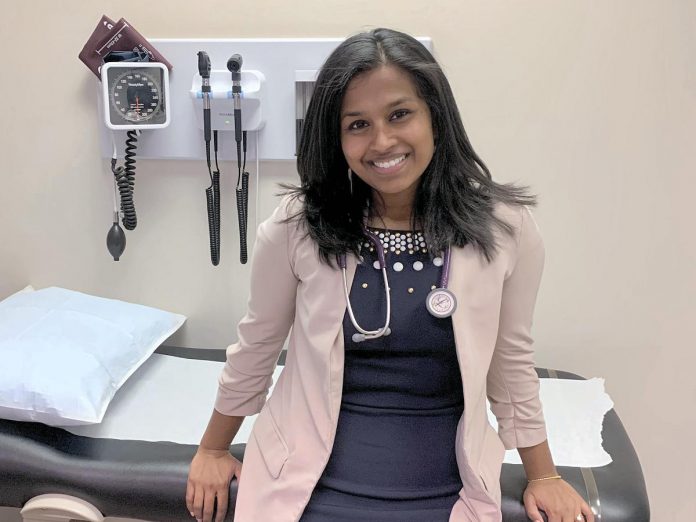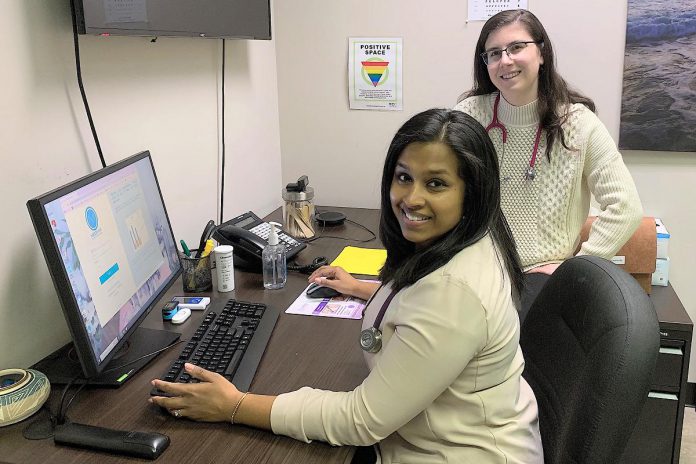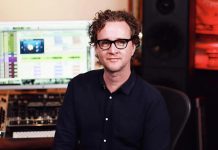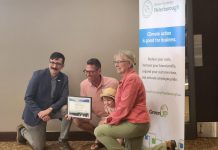
The need for health care for local new Canadians is growing beyond the capability of the Peterborough Newcomer Health Clinic (PNHC), according to the clinic’s founder Dr. Madura Sundareswaran.
In a recent year, Peterborough welcomed more than 150 government-assisted refugees to its community, not including Ukrainian refugees who arrived to Canada via the Canada Ukraine authorization for emergency travel program, privately sponsored refugees, or refugee claimants in the community.
“We are hoping to add a second physician to the PNHC in order to build capacity of the clinic and its services, and to ensure sustainability of the clinic’s operations long term,” Dr. Sundareswaran told kawarthaNOW when highlighting those statistics.
The PNHC is a transitional clinic for immigrants and refugees in the city and county of Peterborough. The clinic, which provides short-term medical care for up to six months, was started the clinic as a pilot project to evaluate and assess the need of such a service for newcomer clients and help structure future programming.
“Since we began operations in January of 2023 we quickly surpassed our target of 50 clients, having completed a total of 92 intake assessments for new clients between January and December,” Sundareswaran said. “At our current capacity, even a target of 100 new intakes per year would be insufficient to meet the needs of all refugee newcomers in their first year in Canada.”
The clinic provides patients with services that include an orientation to the Canadian health care system, immunizations, preventative care education, referrals to specialist services, prescriptions for up to six months, and stabilization of chronic medical conditions.

With Dr. Sundareswaran at the helm as its sole physician, the PNHC is a partnership between the New Canadians Centre, the Peterborough Family Health Team, and the Greater Peterborough Health Services Foundation.
The PNHC operates on a referral-only basis with clients being referred directly to the clinical team from the resettlement assistance program (RAP) at the New Canadians Centre. To date, clients eligible for the PNHC’s services must be within one year of settlement, have OHIP coverage, and cannot already have a family physician already in Ontario.
“The general feedback from community members and health care providers has been that there are many clients in the community who would benefit from this service but are unable to access it,” Dr. Sundareswaran said. “This may be due to limited intake into the clinic — the target of 50 clients per year — as well as restrictive eligibility criteria.”
At present, the clinic’s team consists of Dr. Sundareswaran and a registered practical nurse.
“We are currently offering clinical direct patient care services half days per week,” Dr. Sundareswaran said. “However, the administrative work, preparation, and indirect patient care takes on average an additional half to one day per week which is uncompensated physician time. In the current structure, we will not be able to increase patient volumes without growing our clinical team.”
She said staff at the New Canadians Centre continues to advocate for their clients and she’s aware of “the heavy loads that they carry trying to assist their clients with health care system navigation.”
“Newcomer clients have unique and complex health care needs, are unfamiliar with the Canadian health care system, and our community is facing a shortage of family physicians,” Dr. Sundareswaran explained.
“The work we offer through the PNHC still leaves several families and individuals needing assistance and depending on RAP workers, volunteers, non-profit organizations, and sponsors who work tirelessly trying to help them attend appointments, follow up with test results, but — most importantly — try to find a doctor, in person or virtual, in the first place.”
“The goal of our clinic has always been sustainability,” Dr. Sundareswaran said. “As a team of myself, the Peterborough Family Health Team, and the New Canadians Centre, we have always been wary of taking on more than we would be handle. It has been more important to build a model of care that is safe, efficient, but also does not depend heavily on the goodwill and in-kind support of several individuals as we know that can be finite.”
When asked how recruitment efforts were going, Sundareswaran said it’s a combination of hope and disheartenment.
“We are dealing with what I can only call a crisis in primary care. Inadequate physician compensation, lack of support for team-based care, increased administrative burden for physicians, and fewer and fewer medical students choosing family medicine as their career, are all factors leading to a provincial family physician shortage. This undoubtedly makes recruitment efforts for the PNHC challenging as well.”


























